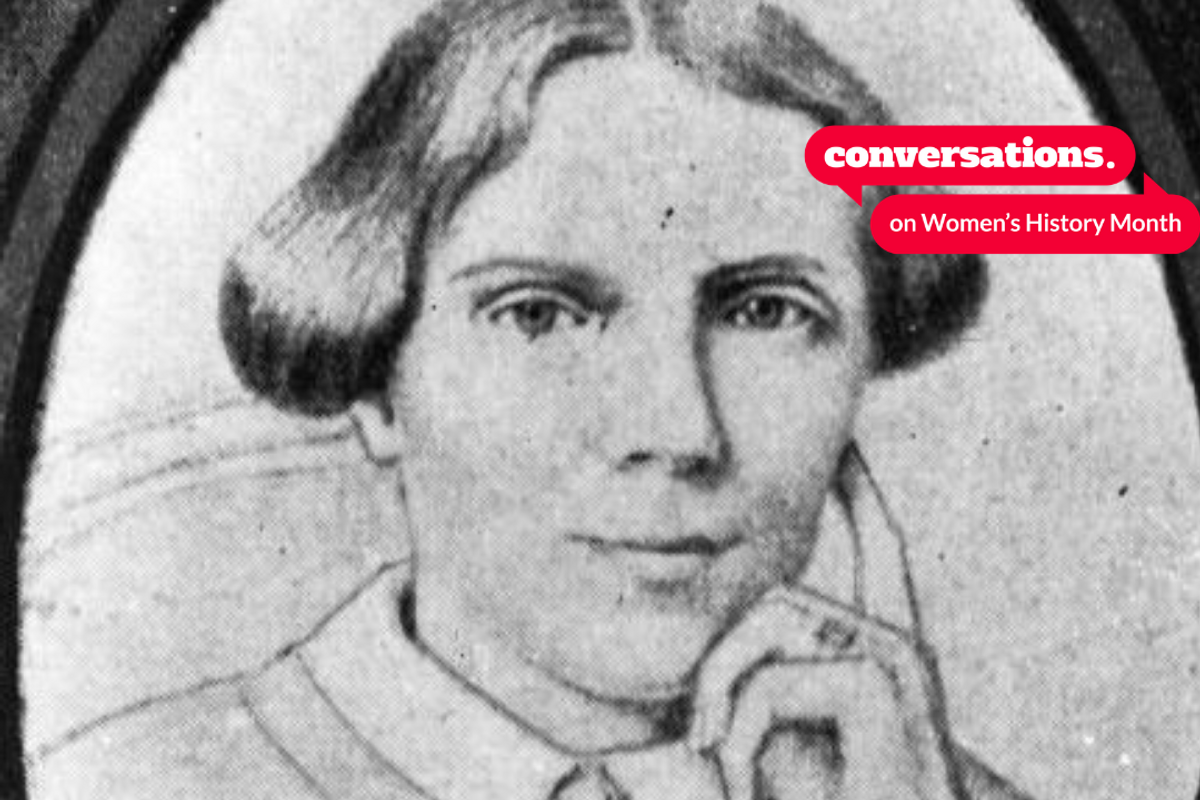Elizabeth Blackwell: How she paved the way for women in medicine
Elizabeth Blackwell was the first woman to receive a medical degree in the United States and was a champion of women in the medical profession which led to her opening up her own medical college for women.

Elizabeth Blackwell
Since the beginning of time, women have strived and succeeded in any career path that they chose. Whether that's in the realm of politics, advocation, or other humanitarian endeavors. Women also happened to pave the way for the trajectory of medicine.
Let's introduce Elizabeth Blackwell to the stage.
Elizabeth Blackwell was the first woman to receive a medical degree in the United States. She was a champion of women in the medical profession, which led to her opening up her own medical college for women.
Blackwell was born outside of Bristol, England, on February 3, 1821, and was the third born of nine siblings. Additionally, she comes from a family of fearless pioneers.
Her father, Samuel Blackwell, was a sugar refiner, Quaker, and anti-slavery activist. Blackwell's brother Henry is a well-known abolitionist and women's suffrage advocate who also happened to Mary woman's right advocate Lucy stone; Emily Blackwell followed in her sister Elizabeth's path of medicine, and her sister-in-law Antoinette Brown Blackwell became the first woman to be an ordained minister in a Protestant denomination.
Talk about an empowering family!
12 years later, in 1832, Blackwell and her family moved to the United States outside Cincinnati, Ohio. Unfortunately, in 1838, a year into The Panic of 1837, her father Samuel Blackwell passed away, leaving the family in a financial rut.
Elizabeth, her two older sisters, and her mother worked in a predominantly female profession of teaching.
Moreover, Blackwell's biggest inspiration to pursue a career in medicine was when a dying friend of hers said that her whole experience would've been better if she had a female physician.

Many of the male physicians at the time trained as apprentices two seasons doctors. Medical colleges that excepted women were few and far between, although some women who apprenticed became unlicensed physicians.
(Sighs while shaking my head in disappointment).
In 1847, Blackwell went to Philadelphia, Pennsylvania, hoping that some of her quaker friends would help her get into medical school. She was turned away by over 10 medical schools, but a light at the end of the tunnel happened.
Well, at least it seemed like it.
She was admitted to Geneva College, which is in rural New York. But her acceptance letter was a bit of a joke.
Blackwell faced discrimination from the very people that are supposed to be encouraging education. The professors forced her to sit separately in lectures and often excluded her in labs, which many of us know is important for people to experience as they study medicine to grasp the material properly. Even the local townspeople in New York ostracized her, referring to her as a "bad" woman for defying her gender role.
Due to her persevering spirit, Blackwell eventually earned respect from her professors and classmates and graduated first of her class in 1849.
I know that's right!

Afterward, she continued with her training in London and Paris hospitals, although doctors had her in midwifery of nursing primarily.
As a result, she took matters into her own hands and emphasized the importance of preventative care and personal hygiene. She recognized that male doctors often caused epidemics to occur because they failed to wash their hands in between patients they were caring for.
With the help of some of her Quaker friends, Dr. Blackwell opened up a small clinic to treat poor women in New York City. In 1857, she opened up the New York infirmary for women and children with her sister Dr. Emily Blackwell and colleague Dr. Marie Zakrzewska. The goal of this infirmary wants to provide positions for women physicians as well.
Over a decade later, Blackwell officially opened up a medical college in New York City in 1868. And a year later, she placed her sister in charge and returned to London permanently.
Dr. Blackwell also became a gynecology professor at the new London school of medicine for women and 1875. And she also was a founder of the National Health Society and published many books, most notably her autobiography titled Pioneer Work in Opening the Medical Profession to Women in 1895.
All in all, women like Dr. Blackwell and many others that came after her who followed their dreams, regardless of the naysayers and rejection in a very male-dominated field, continue to inspire and warm the hearts of many to this day.
Have you got something to say about women's rights? Do you want to share your opinion with the rest of the world? Sign up and submit a post today!
- Inspiring ways to celebrate Women's History Month - Indy100 ... ›
- Elizabeth Cady Stanton and Lucretia Mott prove why everyone ... ›
- International Women's Day: The importance of abortion equality ... ›
- Women's History Month - Indy100 Conversations ›
- As we celebrate Women's History Month, we remember the ... ›
- Why Women's History Month is in March - and how you can ... ›


